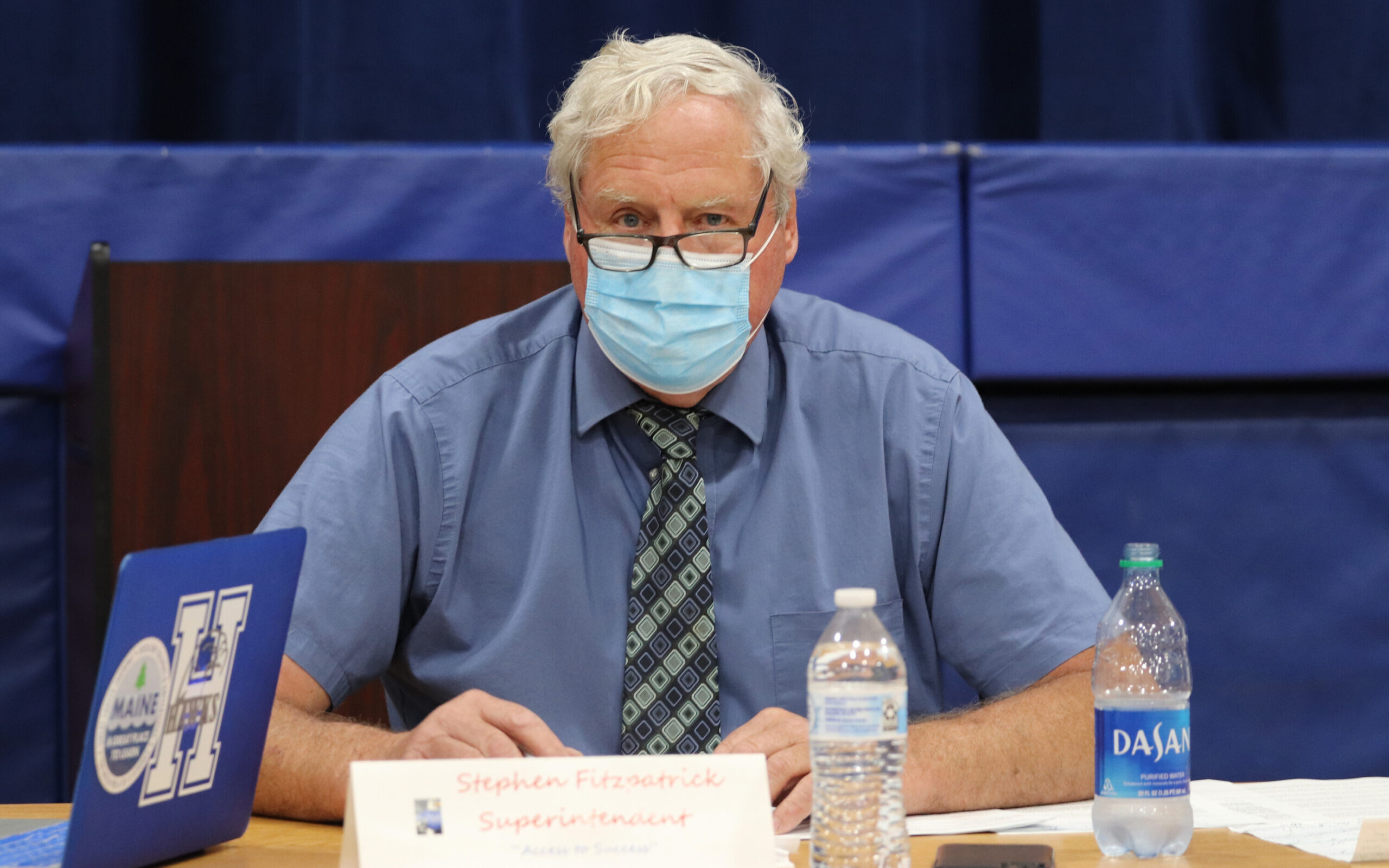HODGDON, Maine — SAD 70 Superintendent Stephen Fitzpatrick responded to the results of an investigation that found the school had violated Maine Department of Education regulations in creating new individual education programs for special needs students.
His response was given during the school board’s meeting held Monday, June 14, at Hodgdon Middle/High School.
The investigation had found that a group of 13 special needs students had been given new programs without properly informing parents beforehand or fully considering the needs of the students, putting them in more mainstream classroom environments that an independent investigation found was sometimes to their detriment.
The DOE report commended the school for trying to give the special needs students as much time in a regular classroom as they could handle, but pointed out that more effort should have been made to explain the changes to the parents and guardians of the affected students, and that the needs of the subgroup of 13 students were not fully considered.
Fitzpatrick defended the new programs for the special needs students, saying the school was attempting to give them the best education possible. But he acknowledged that the school had erred in its procedure for altering the students’ programs and that parents were not properly informed of the changes.
“Our best and most effective math and English language arts instructions occur in the classroom mainstream. Most disadvantaged [students], unless they’re profoundly disadvantaged, have a right to that high quality instruction and our great teachers,” Fitzpatrick said. “Educational research supports least restrictive environments and inclusive instruction with their peers as the most effective learning for all kids concerned.”
While not at the meeting, special education director Sandy Flacke, Ph.d, wrote a letter in defense of the school’s education programs, saying that navigating the COVID-19 pandemic had created challenges for the new education programs.
“The Investigator said very little in his ruling about how the pandemic at the start of the school year was stretching every staff member to the limit, or about how the district was doing its very best to meet all special education procedural requirements while also supporting staff who were being asked to do more than educators may have ever had to do in the face of a world-wide crisis,” Flacke wrote. “In short, the Investigator ruled that although the district’s mainstreaming goal was a good one, he ruled that we did not fully meet all the procedural requirements for each of the involved students.”
School board member Clarissa Porter questioned Fitzpatrick on one of the students listed on the report, whose mother had decided to pull her out of school because of anxiety caused by the new change in learning environment.
“Mainstreaming wasn’t working for her,” Porter said. “I mean, I get that, when you don’t feel like you’re enough or you can’t understand what everybody else is doing.”
In response, Fitzpatrick said that a parent of a student struggling with anxiety had a right to set up a meeting with the school to address those concerns.
“Every kid that comes into school as a new student, or every student at the beginning of the year, is anxious,” He said. “If anxiety reaches a point where it is non-productive for the student, then all that teacher or parent has to do is notify the special ed director.”
School board member David Harris, who is the father of a special needs student, defended the school’s new programs, saying it benefited his daughter and criticized teachers who had brought the complaint forward.
“When they [the teachers] complain about this program, you’re telling parents like me that my child’s not worthy of your time,” he said. “That really offends me.”
Diane Jurson, a teacher who had attended the school board meeting, defended the teachers’ choice to bring forward the complaint to the DOE that prompted the investigation.
“I would challenge each board member to actually read the full investigation and consider other views of what happened,” she said. “And I have to respond on the behalf of the [teacher’s] association that teachers did all they could.”







